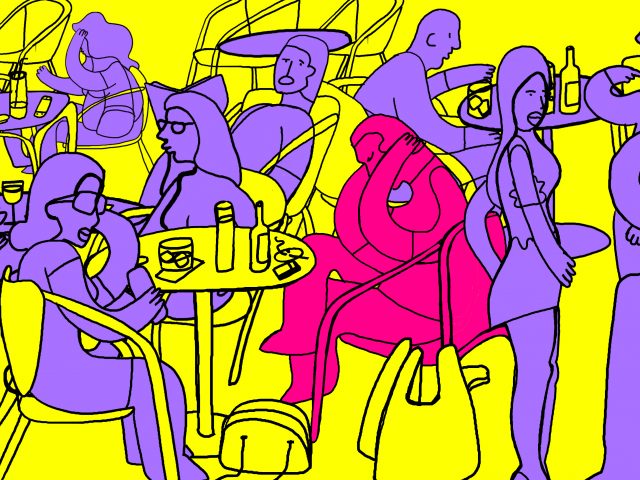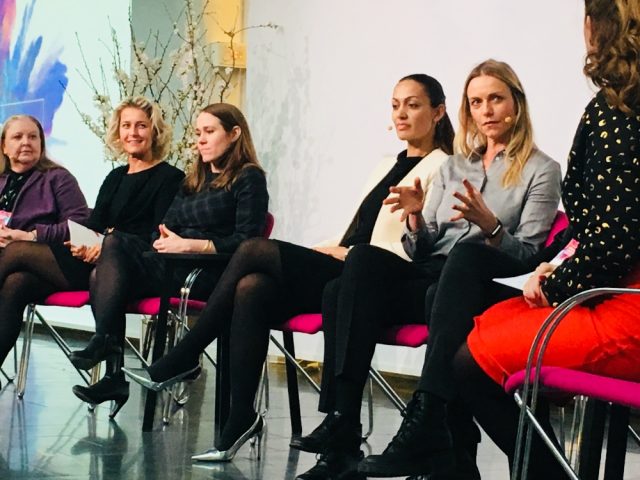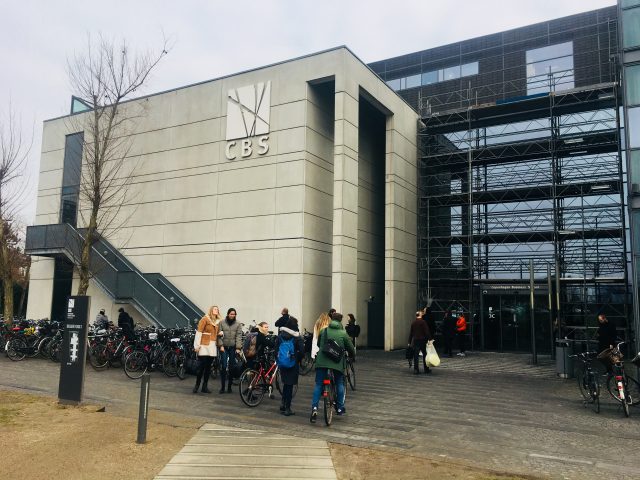Lockout?

CBS (Photo: Mette Koors)
There are many questions, but not a lot of answers. A lockout is threatening staff members and students, and HR is trying their best to give you an idea of what exactly will happen when you are subject to a lockout. For example, you cannot take your work computer home, but CBS is not going to ask you to hand it in. Then there are the questions about people who are employed outside of Denmark’s borders. What about them?
UPDATE 10:15 the 4th of April
On the 10th of April, at the earliest, CBS will be more or less abandoned.
The Danish Agency for Modernization has issued a lockout for the majority of CBS’ employees. This simply means that everyone who is subject to the lockout will not be allowed to go to work or do anything work related. The reason being is that, technically, those persons are not employed while the lockout lasts.
“If a lockout takes effect, you are actually supposed to hand in your keys, your computer, your phone – anything work related, as you are no longer employed. But it would be too much of an administrative hassle to enforce this, and that’s why CBS does not demand you to hand in all these things. That being said, you are not allowed to use any equipment that belongs to CBS during a lockout,” says Anders Lauesen, Head of HR at CBS.
Explaining why some Danish teachers are not allowed to go to work can be a little difficult to explain to, for instance, the Chinese authorities
Anders Lauesen, Head of HR
Since not everyone at CBS is subject to the lockout, HR at CBS has, on Thursday evening, sent out an email asking whether the employees are unionized and whether their union is subject to the lockout. This is something that HR is not normally allowed to ask about.
“This is a lot of work because we have to identify the people who are not unionized, and thereby not subject to the lockout, as they can still go to work as they would normally and get paid as usual. But that is a lot of work because normally we are not allowed to ask whether people are unionized or not,” he says and adds that the retrieved information is not going to be added to the employees’ staff file for future reference.
What happens if you are not unionized, but do not answer the mail before the 20th of March at 16:00?
“Well, then we stop paying you from the day the lockout begins. It’s as simple as that. However, if it is a mistake, and you can prove that you are not subject to the lockout, then you’ll get paid,” he says.
However, the lockout will not only affect those who are staying within Denmark’s borders. It is more far-reaching than that.
How do you explain a lockout to the Chinese authorities?
Employees who are unionized and working outside of Denmark, will also be affected by the lockout. But being outside of Denmark can cause other kinds of problems as well.
“Technically, you need to leave the country and go home to Denmark, as a stay abroad is considered an official journey. But going home is not necessarily that easy if you have rented a house or an apartment, and maybe even have your family with you. So, we hope that we don’t have to ask people to come back to Denmark. And we won’t unless we are given orders to do so from the ministry,” he says and continues:
“But explaining why some Danish teachers are not allowed to go to work can be a little difficult to explain to, for instance, the Chinese authorities.”
At the moment, HR is working on collecting as much information as possible about the consequences for employees abroad.
We are worried about the possible consequences of a lockout for our students, and we fear that it can affect the intake for future programs
Poul Hedegaard, MBA Director
And then there is the non-EU citizens in Denmark. What about them?
In the FAQ-sheet that HR has made, it states that “the residence and working permit of a non-EU citizen granted on the basis of your employment at CBS will not be revoked.”
However, it is not possible to apply for extensions during the lockout. If your residence and work permit expires during the possible lockout period, you must submit your application for extension before the lockout comes into effect.
“Failing this, you are at risk of being an illegal resident in Denmark,” the FAQ sheet states. ¨
A bombardment of questions
At CBS, you have several students who have paid for their studies. This includes all of the students doing the MBA programs.
Poul Hedegaard, the Director of the MBA Program, says that they do not have a full overview of the possible consequences, but they are looking into ways where they can try to secure the teaching.
“We have, at the MBA, mapped all of our activities and worked on establishing an ‘emergency plan’ so that we can help our students as best as we can. As it is right now, I can’t say much about it, other than we are worried about the possible consequences of a lockout for our students, and we fear that it can affect the intake for future programs,” he says.
When HR, on Wednesday the 21st of March, has got an overview over who is going to be subject to a lockout or not, they will have a better idea about who can still work or not.
But until then there are a million questions waiting to get answered by the authoritites, explains Anders Lauesen.
”When the lockout was issued, the autorities haven’t thought about the fact that the universities are a part of this. The authortities, the Agency for Higher Education and the Agency for Modernisation, cover 41,000 employees, and they have bombarded the authorities with questions such as; what do I do with SU if I’m on the third year of my PhD and can’t hand in my project? Those are questions they need to give some sort of answer to,” he says.



































































































































Comments